Fruit series
フルーツシリーズ
Uranium is a natural mineral that has quietly existed deep within the Earth.
In this series, I use uranium-infused glass to shape fruits—symbols of nature’s bounty and the essence of life. Energy born from the Earth transforms its form, now reappearing as the shape of life. It is also a quiet act of reflection—on nature and humanity, science and beauty, past and future.
Under ultraviolet light, its beautiful fluorescent green glow seems to erase the shadows of the past,
and continues to shine—silently, eternally.
ウランは、地球の深奥に静かに存在してきた天然の鉱物です。
このシリーズでは、ウランを含んだガラスを素材に、自然の恵みと生命の象徴である果物をかたどっています。地球で生まれたエネルギーが、すがたを変え、いま命のかたちとなって現れる。それは、自然と人間、科学と美、過去と未来を静かに見つめ直す行為でもあります。
紫外線のもとで蛍光緑に輝くその美しい光は、かつての影を忘れさせながら、静かに、そして永遠に輝き続けます。
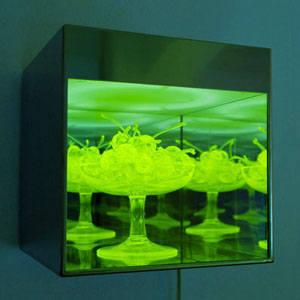
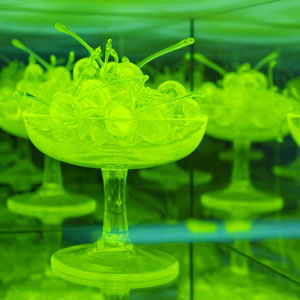
"Cherries"
Uranium glass, stainless steel and mirror box with black light
28 x 25.5 x 25.5 cm (HxWxD)
《さくらんぼ》
ウランガラス、ミラー、ブラックライト、ステンレスボックス
28 x 25.5 x 25.5 cm (HxWxD)
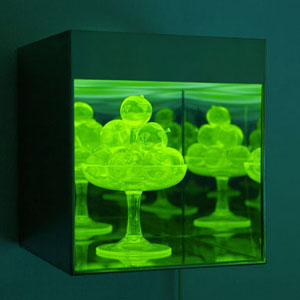
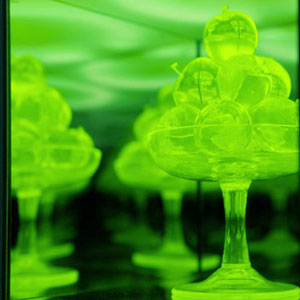
"Small Apples"
Uranium glass, stainless steel and mirror box with black light
28 x 25.5 x 25.5 cm (HxWxD)
《小りんご》
ウランガラス、ミラー、ブラックライト、ステンレスボックス
28 x 25.5 x 25.5 cm (HxWxD)
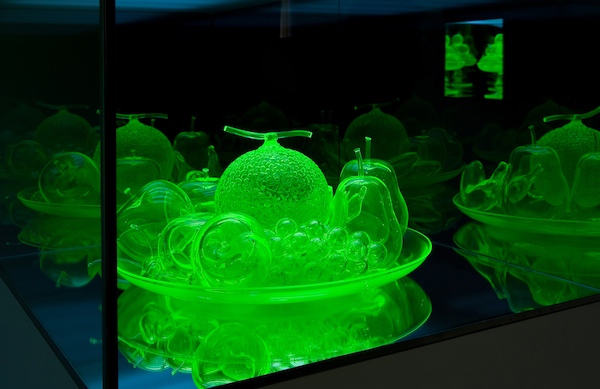
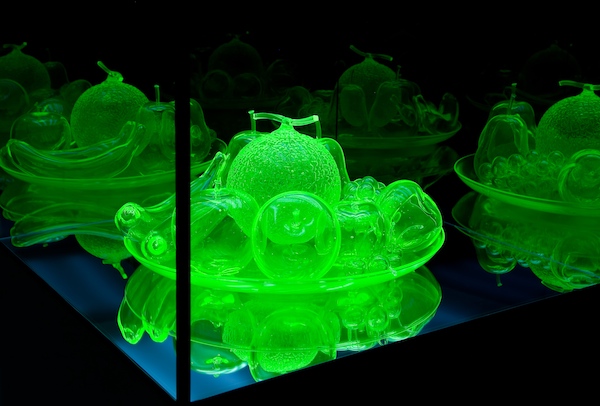
"Fruit"
Uranium glass, stainless steel and mirror box with black light
56 x 60 x 60 cm (HxWxD)
2013
Exhibition view at Aichi Triennale in Choja-machi District, Nagoya, Japan
《フルーツ》
ウランガラス、ミラー、ブラックライト、ステンレスボックス
56 x 60 x 60 cm (HxWxD)
2013年
伏見地下街、名古屋
あいちトリエンナーレでの展示風景
© Koichi Matsufuji, All rights reserved